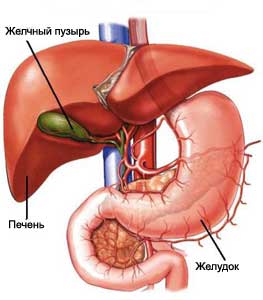Endoscopic retrograde cholangiopancreatography – ERKhPG
Description of endoscopic retrograde cholangiopancreatography
Endoscopic retrograde cholangiopancreatography (ERKhPG) It is used to treat and diagnose liver problems, gallbladder, bile and pancreatic ducts. ERCP uses a combination of endoscopy and X-ray examination. Endoscopy – the use of a special tube with a camera to inspect the throat, stomach and upper intestine.

Reasons for ERCP
Your doctor may prescribe ERCP if there is suspicion of the following diseases:
- Blockage of the bile ducts;
- Lock pancreas;
- The flow of the bile duct;
- Irritation of the pancreas (pancreatitis) or liver (hepatitis).
Possible complications of endoscopic retrograde cholangiopancreatography
Complications are rare, but no procedure does not guarantee the absence of risk. If you plan to ERCP, you need to know about possible complications, which may include:
- Damage to the esophagus, stomach, small intestine, or bile duct;
- Pancreatitis (irritation of the pancreas);
- Infection;
- Bleeding.
Some factors, that may increase the risk of complications:
- Problems during the last ERCP;
- Blood clotting;
- Abnormalities in the anatomy;
- Pregnancy;
- Poor overall health.
How is endoscopic retrograde cholangiopancreatography?
Preparation for the procedure
- Do not eat for 8-12 hours before the procedure;
- If you have diabetes, Ask the doctor, whether it is possible to take prescribed medication ERCP;
- We need to organize a trip home from the hospital after the procedure. (You do not have to drive for 24 hours after treatment);
- Tell your doctor, if you have had an allergic reaction to the radiopaque substance.
Consult your doctor about the drugs taken. A week before surgery you may be asked to stop taking some medicines:
- Aspirin or other anti-inflammatory drugs;
- Blood thinners, such as warfarin, clopidogrel.
Anesthesia
- Local anesthesia – You can provide pain medication as a spray for the throat;
- Sedatives – to help you relax;
- If the doctor says, that ERCP will take a long time, It may be used general anesthesia. You will sleep during the procedure.
Procedure ERCP
You will lie on your stomach with your head turned to the right. Special expander will be placed in the mouth, to keep it open. Assistant doctor will monitor your breathing and heart rate. The doctor inserts an endoscope into your mouth. The tube is slowly inserted through the throat into the esophagus, stomach, and / or small intestine. Through the endoscope will supply air, to expand the path of the intestine by endoscope.
The doctor will watch the images on the monitor screen. The end of the endoscope will be summed to the site, where the ducts of the liver and the pancreas are connected to the small intestine.
A tiny tube is fed through the endoscope will place the output of bile and pancreatic ducts. Through this tube the doctor will inject a contrast agent. The contrast will make the channels visible on X-rays. If detected in the picture gallstone, your doctor may try to remove it through the endoscope. Scarring or narrowing of the channels are also examined and photographed. They can be selected for the tissue samples Biopsy. Samples will be sent to a laboratory for further investigation.
How long will ERCP?
From 30 minutes to two hours.
ERKhPG – Will it hurt?
During the procedure, you may feel discomfort in the throat. After the procedure, the throat will be sore for a few days.
The average hospital stay
If ERCP is performed to diagnose, you can go home the day of the test. But, if the endoscope were performed other procedures, You may be required to remain overnight in the hospital.
Care after ERCP
Care in a hospital
You will be directed for restoration. Health surveillance to be carried out for at least one hour, before you go home.
Home Care
Be sure to follow your doctor's instructions, which may include:
- Do not drive for 24 hours;
- Rest the remainder of the day;
- Return to normal eating habits, unless otherwise noted physician;
- Do not drink alcohol during the 24 hours after treatment;
- If you were asked to stop taking certain medications before the procedure, ask your doctor, when to resume taking them.
Contact your doctor after ERCP
After returning home, you need to see a doctor, If the following symptoms:
- Signs of infection, including fever and chills;
- Nausea and / or vomiting, or vomiting blood;
- There were severe abdominal pain;
- Black, the resin, or bloody stools.
